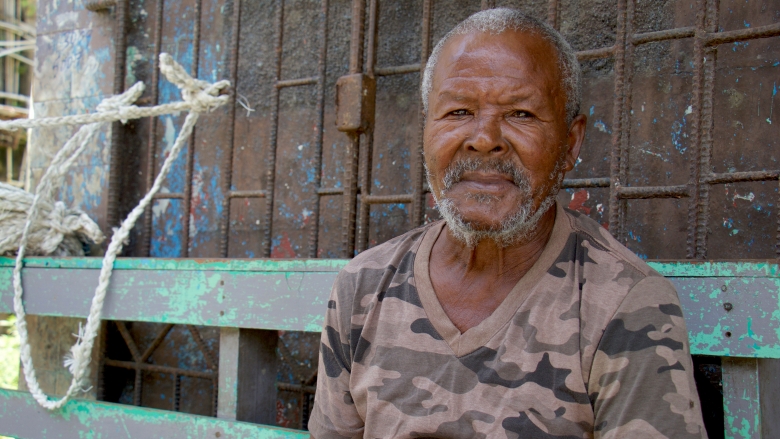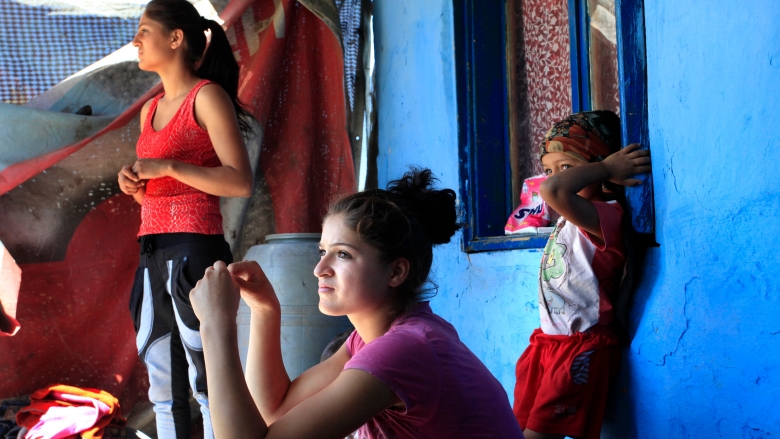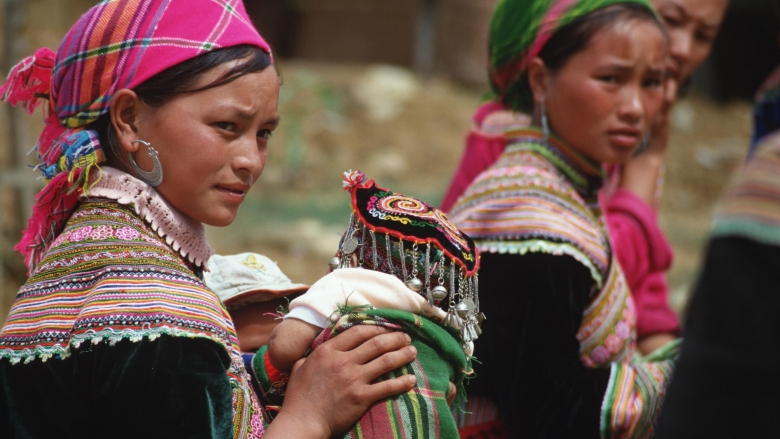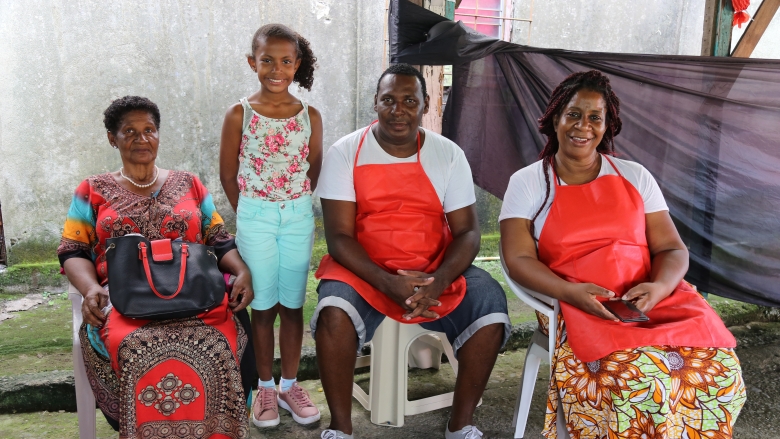The current global wave of frustration against racial discrimination and social injustice has highlighted one troubling reality above all others – that marginalized groups continue to face challenges in accessing equal opportunities and accountability.
From Afro-Descendants in Latin America, to the Roma people in Europe, and Indigenous People in Vietnam, vulnerable or minority populations are often more exposed to the damaging effects of crises. Discrimination at every level, in addition to the relative lack of access to health systems, education or jobs, make it daunting for them to cope with crises – a reality that the COVID-19 pandemic has laid bare.
At the core of the World Bank Group’s development mandate is a commitment to protect those who are most vulnerable so that everyone – regardless of their gender, race, religion, ethnicity, age, sexual orientation or disability – can access the benefits of development.
The World Bank Group’s goal of boosting shared prosperity puts a spotlight on the welfare of the bottom 40% of the population in each country, where a significant proportion of these marginalized populations fall. By creating more equal opportunities, and promoting social mobility, inclusive growth can become a prority for racial and ethnic minorities.
We focus on increasing access to decent jobs, better services, and more secure livelihoods that help traditionally excluded people to participate fully in society and live with dignity. To do so, the Bank draws on decades of operational knowledge, research, and experience on the impacts of exclusion and by emphasizing citizen engagement, the inclusion of women, indigenous peoples, disabled persons, and sexual and gender minorities. In addition, the Bank manages the environmental and social risks of projects through the Environmental and Social Framework, which includes non-discrimination provisions against disadvantaged or vulnerable individuals or groups.
In responding to the COVID-19 pandemic, the Bank has already provided emergency support to over 100 developing countries – home to 70% of the world’s population. As part of the Bank’s social response, including conventional social protection schemes as well as community development, and food security efforts, the Bank is conscious of the importance of socially equitable approaches. In essence, we recognize that vulnerable groups are at greater risk and may require more support during crises.
Afro-Descendants in Latin America
One in four Latin Americans, over 130 million persons, identify as being Afro-Descendants and share a history of exclusion. They face significant gaps in access to essential services, including education and employment. Afro-Descendants are also 2.5 times as likely to be chronically poor, earn less for the same job, and are frequently the victims of violence.

Photo Credit: Jessica Belmont / World Bank
The Bank has worked with Latin American countries for many years to bridge this gap. In Costa Rica, our support expands economic opportunities for Afro-Descendants and other marginalized groups. It aims to assess existing gaps in digital access for Afro-descendant people, students and teachers, including those with disabilities and establish measures to close those gaps. Another project incorporates climate-smart adaptation measures in training programs for Afro-descendant communities, helping bolster their faith in systems that have traditionally failed to include them.
Despite significant gains over the past decade, Afro-Descendants are still overrepresented among the poor and underrepresented in decision-making positions, both in the private and the public sector. A recent study undertaken by the Social Development Global Practice helps deepen our empirical understanding of the drivers behind the persistent exclusion of the Afro-Descendants, which is a prerequisite for identifying appropriate solutions.
Roma in Europe
The Roma are the largest ethnic minority in Europe, as well as one of the most deprived and socially excluded groups. The 10-12 million living in Europe have been discriminated against for centuries, suffering from systemic racism and exclusion. This has spurred a vicious cycle of unequal opportunities and stifled aspirations, which in turn have contributed to poverty and led to deep and persistent social and economic disparities between Roma and non-Roma. In Eastern Europe, for example, seven out of ten Roma households live in deep poverty. Although many Roma families live in upper-middle and high-income countries, they still cope with levels of poverty, hunger and deprivation on par with the poorest areas of the world.

Photo Credit: Dominic Chavez / World Bank
The World Bank has been supporting Roma inclusion for over two decades. At first, our efforts focused mostly on generating data and evidence to shed light on the socio-economic situation of the Roma. While this continues to be important, the World Bank is increasingly focused on ensuring that Roma inclusion is better reflected in the policy dialogue and investment interventions. Empowering Roma communities and organizations to identify their needs and help develop solutions is an important part of this. In Romania, for example, the Bank established a ‘Roma Sounding Board’, a platform of Roma civil society organizations set up to incorporate Roma concerns and perspectives into our portfolio and to amplify the voices of Roma in the policy dialogue.
Roma inclusion is not just the right thing to do: it is also smart economics. The Roma are a young population and represent an increasing share of new labour market entrants. Investing in Roma inclusion would not only help these countries accelerate growth, it would also counter the effects of a decline in the working-age population due to ageing, emigration, and declining fertility rates.
Indigenous Peoples
Indigenous Peoples are another vulnerable group that experience high levels of inequality and exclusion in regular life. Around 15% of the world’s extreme poor, or 476 million, are indigenous persons. They have a life expectancy that is up to 20 years lower than non-indigenous worldwide. They often live in inaccessible or remote areas, making it difficult to access basic services, including internet or a digital identity, which others take for granted.

Photo Credit: Tran Thi Hoa / World Bank
This legacy of inequality and exclusion – which has made them more vulnerable to crises, including outbreaks such as COVID-19 – is one that the World Bank is trying to change.
For example, as part of our support to Vietnam, the World Bank broadened economic participation for indigenous ethnic minorities, women, and vulnerable groups through a multi-sectoral engagement with a focus on livelihood- and-income generating activities. The project took a community-driven development (CDD) approach that gave women a stronger voice and representation. Ethnic minority languages were also used in village meetings, trainings, and communication materials leading to more inclusive project planning and implementation.
Another project in Guatemala aims to improve the development and nutrition of young children within the communities of Indigenous Peoples by training mothers and caregivers, ultimately resulting in better childhood cognitive and language skills and building respect for the women in their community.
These efforts across the world are part of the World Bank’s broad support for social development, focusing on the need to put people first. Our Environmental and Social Framework enables it to better manage social risks of projects through a commitment to stakeholder engagement with one ultimate focus – supporting and empowering people to become the architects of their own solutions.

